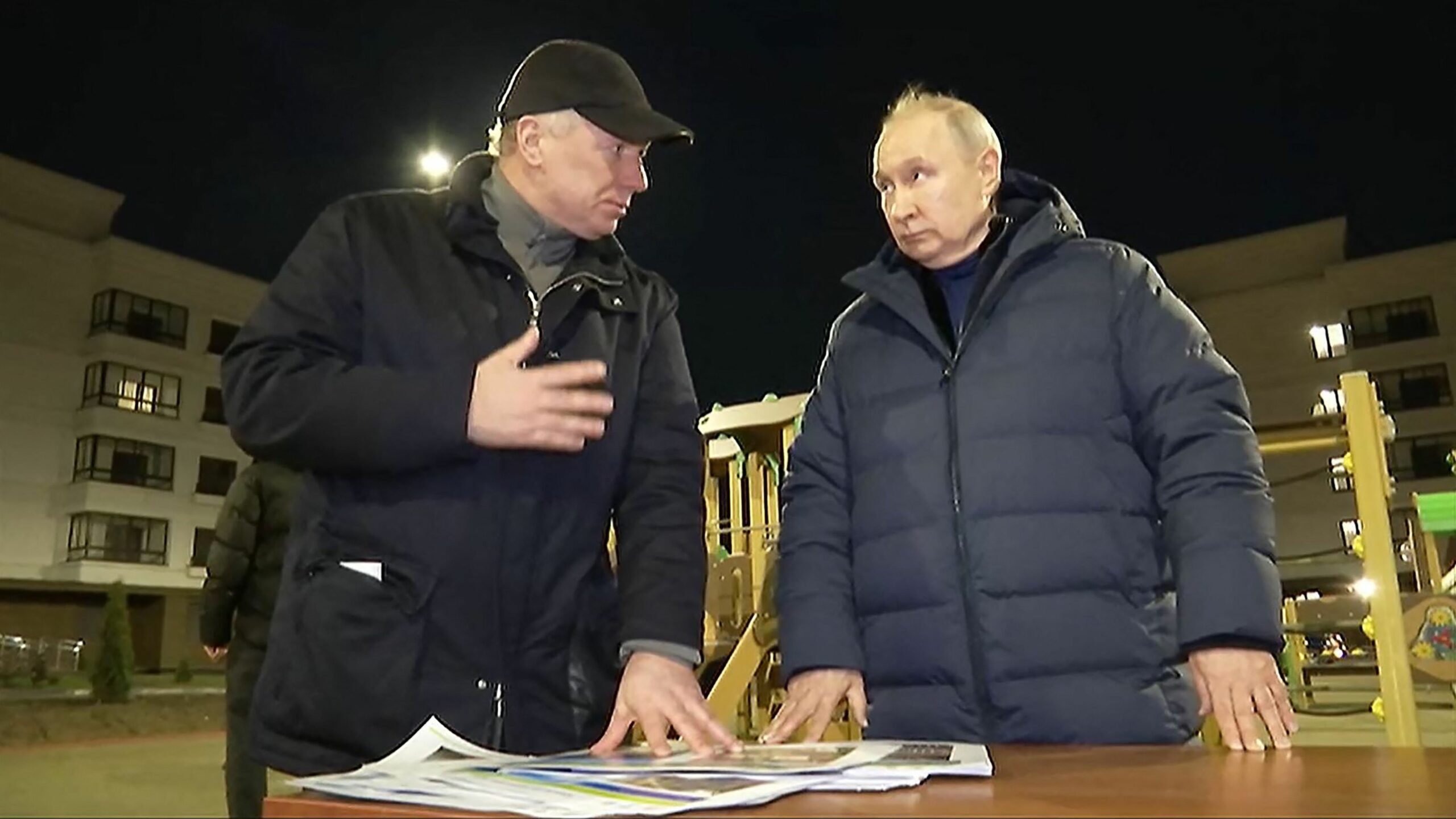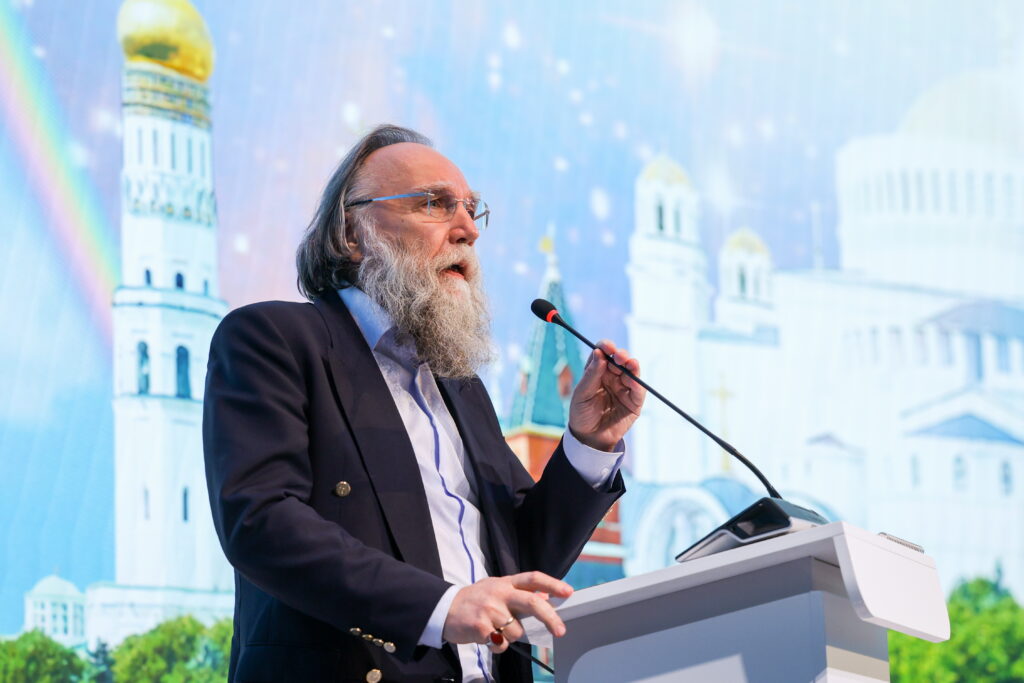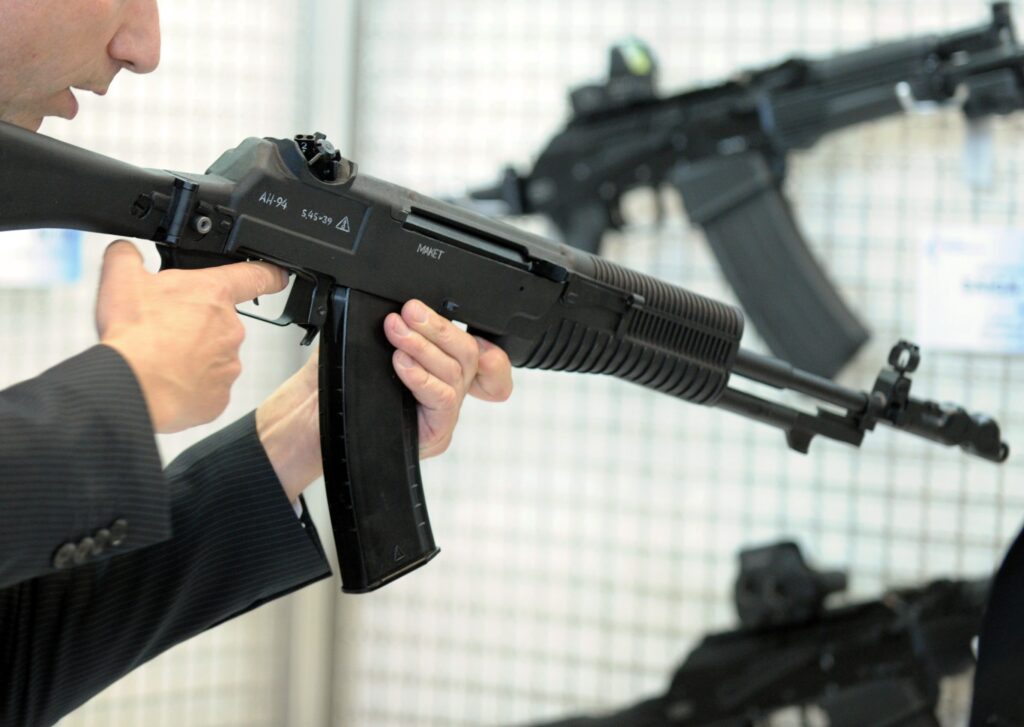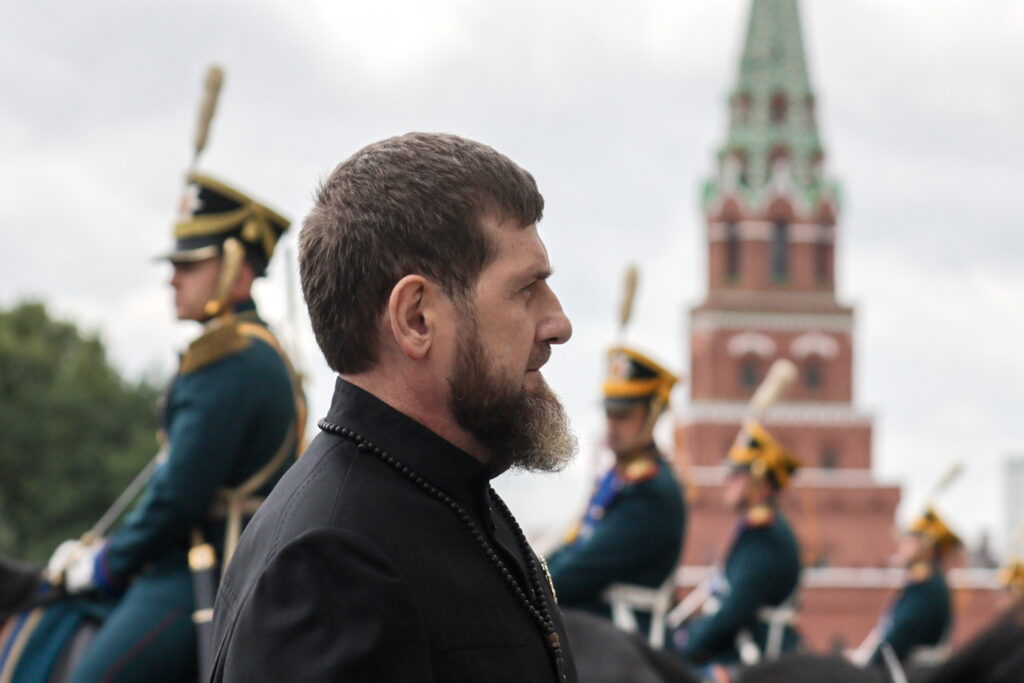Against the backdrop of a full-scale invasion of Ukraine, those within the Russian elite not directly linked with the war are strengthening their influence. One of these figures is Deputy Prime Minister for Construction Marat Khusnullin. He was already increasing his political weight even before the war — promoting his subordinates to gubernatorial posts and channeling many budgetary flows in his direction. And during the war, his rise accelerated. Khusnullin has managed to establish himself as an overseer of the restoration of infrastructure in the occupied territories and has became one of the presidential favorites among government officials. Now, the Deputy Prime Minister holds the status of a special presidential envoy and is clearly ready to take on new career heights or lucrative contracts for his inner circle.
«On behalf of the President, I have visited new regions, inspected facilities, held meetings on regional programs for socio-economic development, Khusnullin wrote on his Telegram channel after a recent trip to Ukraine. «I also visited Artemovsk,» he added, using the Russian government’s term for the Ukrainian city of Bakhmut. «The city is damaged, but it can be restored. We have such experience. As soon as the operational situation allows, we will go in and work step by step,»
Khusnullin became the first high-ranking government official who did not just go to the abstract «Special Military Operation zone», but to the hottest sector of the front. Prior to this, it was him who accompanied Vladimir Putin on his night trip to the annexed Mariupol — as opposed to the first deputy head of the Presidential Administration, Sergei Kiriyenko, who is responsible in the Kremlin for the Donbass. During the night trip, Khusnullin showed the president new buildings against the background of destroyed houses and claimed these houses were purposefully destroyed by the Ukrainian military. The vice-premier even asked the president for permission to «live» in the city for a while. Judging by Putin’s reaction, he clearly liked Khusnullin’s story. The Deputy Prime Minister for Construction knows how to find an approach to the Russian president, who has repeatedly praised him publicly.
«Specialists, natives of Tatarstan, achieved outstanding results in housing construction last year. And even in Soviet times, in our country, there were no such results, in my opinion,» Putin said in January of this year. In 2021, he also spoke of «record performance» in construction.
Project after project
Marat Khusnullin cuts a different figure from most other Russian officials. The Deputy Prime Minister for Construction is a stubborn careerist; he knows exactly which project is most profitable to tackle at what time; he is ready to attack the interests of other people and will not listen to their opinion. Or, he will listen if the authorities like this approach. Khusnullin began his career in Tatarstan in the team of the first president of the republic, Mintimer Shaimiev. At the fairly young age of 35, he headed the Ministry of Construction of the region and worked in this post for ten years. Khusnullin oversaw Kazan’s preparations for the city’s millennium and for the 2013 Universiade and made sure that high-profile projects attracted the country’s top leadership. It was at this time that he managed to meet Putin for the first time when Putin visited the region. In addition, Khusnullin was engaged in another important project — resettlement, or rather, the demolition of dilapidated housing in Tatarstan. Formally, the percentage of old houses in the republic decreased, and modern housing was built in their place. However, quite strong buildings were often recognized as «dilapidated» houses, and their residents received not a new apartment in a modern building, but compensation that did not allow them to buy housing in the same area without additional payment. People from the demolished houses came out to protest, but to no avail. Records for the elimination of dilapidated housing were important to the regional authorities to show to the Kremlin. Khusnullin later stated that it was quite simple for him to work this way in the region — the «system» in it was manageable, and the «vertical» was built.
In 2010, an executive careerist comes to work at the Moscow City Hall: first he heads the construction department, and then quickly becomes vice-mayor. After the resignation of Mayor Yuri Luzhkov and the arrival of the former head of the presidential administration, former head of the government apparatus and ex-governor of the Tyumen region Sergei Sobyanin, Moscow expected a change in approaches to development. Under Luzhkov, historical buildings were actively demolished or «reconstructed» beyond recognition. Under Sobyanin and Khusnullin, this policy continued — except the so-called «Luzhkov Empire», the tasteless neoclassical style, which has disappeared from the capital.
The construction complex began to actively «master» parks and green areas, the mayor’s office started high-profile infrastructure projects — for example, the construction of chords (large highways that pierced the city diagonally). The townspeople tried to protect the territories they considered their own, but the mayor’s office did not retreat. In 2017, the city authorities launched another megaproject — «renovation». Publicly, the mayor’s office announced that it intended to demolish the long-outdated Khrushchev era panel buildings and relocate their residents to comfortable, new apartments in freshly built houses in the same area. But it quickly became clear that quite «healthy» brick five-story buildings were on the demolition list, they could offer new housing in a not very convenient place, and the apartments were not so good and required investments in repairs. After mass protests, the plans of the mayor’s office changed a little, but the city administration did not abandon the project as a whole. For a fairly large part of the city’s population, the actions of the mayor’s office looked like a boon: the authorities are building houses and roads, what else is needed. In the eyes of the inhabitants of the «rest of Russia», large-scale construction projects were a symbol of the super-efficiency of the capital’s leadership. Of course, Sobyanin was the face of these actions, but Khusnullin was also noticeable — and first of all, to the Kremlin. In 2020, the Moscow-Tatarstan construction manager was taken upstairs: he became deputy prime minister for construction.
Compatriots on the march
The projects supervised by Khusnullin are usually implemented by compatriots from Tatarstan. Accordingly, they are channeling hundreds of billions of rubles that government agencies spend on construction. For example, the Mosinzhproekt company, one of the largest customers of Moscow construction projects, soon after Khusnullin was appointed vice-mayor of Moscow, was headed by Mars Gazizullin, a native of Tatarstan. After Khusnullin left for the government, Gazizullin was appointed Chairman of the Board of Directors of Mosinzhproekt. Another associate of Khusnullin, Damir Gazizov, leads State-owned enterprise of the mayor’s office «Department of civil construction».
Construction contracts during Khusnullin’s work in the mayor’s office went to companies from Tatarstan. The story does not end with the distribution of state funds in the «right direction». Transparency International found that firms associated with Khusnullin’s acquaintances were receiving land from the city for commercial development at favorable prices. The Dossier Investigation Center learned that the closest relatives of the Deputy Prime Minister own an estate near Paris, a villa on the Cote d’Azur and other expensive real estate abroad. Despite these scandals, the official continued to grow vertically, acting according to methods that were quite familiar to her.
Marat Khusnullin has no serious allies at the upper levels of the Russian elite. The official worked well with both Mayor Sergei Sobyanin and Prime Minister Mikhail Mishustin. Despite the expansion of Tatarstan developers, companies in Moscow continued to receive contracts associated with people from Vladimir Putin’s inner circle — the Rotenberg brothers and Gennady Timchenko. Khusnullin tried to the last not to offend the big players, while not forgetting his own interest. But it is quite likely that after further strengthening of influence, the official will begin to actively promote his people and firms close to them, attacking the interests of the inner presidential circle. The Rotenberg brothers, Gennady Timchenko and Khusnullin work in the same field — the field of large construction orders at public expense. Therefore, the conflict between them looks quite predictable, although not programmed.
The Deputy Prime Minister actively and successfully lobbies his people for various positions. Andrey Bochkarev, a former subordinate of Khusnullin, became the vice-mayor of Moscow for construction. The Federal Minister of Construction is his colleague Irek Fayzullin. Former subordinates of the Deputy Prime Minister became the leaders of the Tambov and Smolensk regions, they also work in the pro-Russian administrations of the annexed territories.
Technocrat and flatterer
Marat Khusnullin has applied an effective career strategy within the framework of the Russian management system — he began to initiate high-profile projects or quickly joining them, counting on the attention of management. He shows no political ambitions, but loves to go public, presenting himself as a technocrat who only thinks about work. In these speeches, he voices ideas that Putin might like. For example, the Deputy Prime Minister suggested using the labor of prisoners at construction sites. Khusnullin, without thinking about the consequences, fit into the military agenda with the «restoration of the territories», although other government technocrats did their best to stay away from the war. A skilled careerist does not hesitate to flatter his superiors. And if earlier Khusnullin constantly praised Sobyanin and Mishustin, now he is increasingly addressing his flattery to Putin, making it clear who he considers his real leader. It is likely that the views of the Deputy Prime Minister also help this. He spoke approvingly about the Soviet times, calling them «good», and called for adopting the Soviet experience. «The condition is quite good. Even on parquet. It, as they say, was laid even under the Soviets, then they did not save on quality. You see, it still stands without cracks,» Khusnullin described his office in the White House with nostalgia. These arguments rhyme quite well with Vladimir Putin’s regrets about the collapse of the USSR. Khusnullin’s acquaintances told Meduza that the official is a longtime supporter of the «manual control» system. And this is also not out of the general rules of the vertical. In his comments on the trip to Bakhmut, Khusnullin highlighted «the president’s order» by proclaiming himself Putin’s confidant.
The careerism and opportunism of Khusnullin’s approach can lead him to new career heights. The Deputy Prime Minister may have several trajectories. Firstly, he can return to his native Tatarstan as the head of the republic. The center is actively putting pressure on the republic and depriving it of the last vestiges of real federalism. Khusnullin, as a person who received a «vertical» inoculation and is personally loyal to Putin on the one hand, and on the other, as a native of Tatarstan, can become a compromise figure for local elites and residents who will not accept a pure Varangian. Such an appointment would not be a demotion for the vice president. Tatarstan is one of the largest, richest and most developed Russian regions. Under Khusnullin, they can create a large state construction corporation — and this also fits into the logic of the system. Status vice-premiers Igor Sechin and Igor Shuvalov left the state corporation. Finally, in the long term, Khusnullin may also receive the premiership. And now the status of a special presidential envoy opens up additional opportunities in obtaining government contracts or orders from big business for firms close to the official. One thing is obvious — the vice-premier is clearly not going to stop in his career movement.










